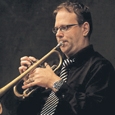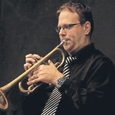Making a beautiful sound is sometimes as easy as realizing how one wants to sound. Students often accept whatever sound comes out of their horn as they way they sound. They forget to hold themselves to a higher standard, especially if the best sound they hear is the student sitting next to them. If teachers can offer their students immediate, tangible, and frequent examples of beautiful and brilliant playing, students’ standards for themselves will quickly rise.
Starting a Listening Library
Even the most modest high school includes a library where students can explore the boundaries of human learning, experience, and creativity. Why is it that most high school music programs lack a music library where students can go have the same experiences in the musical realm?
It is simple to begin a small library in the music department or even as part of the main school library. Involve students in the planning process so that they are invested in the library, have input in the selection of music, and will be excited to use the library once it is established. A library can be stocked with music donated by the students, parents, friends of the school, or local musicians who have extra recordings of a particular piece and would like to see them used and enjoyed. The library should represent many genres, including jazz, blues, rock, symphonic band, brass chamber music, big band, and classical music of every period (Renaissance, baroque, classical, romantic, and modern). The musical library can also include scores of the music the students are currently playing in band, as well as scores for some of the CDs in the library. Most students have never seen a score before, and will gain sophistication as they begin to understand the layout of the score, follow the music they are hearing, and learn the meaning of performance markings they have not seen before.
Structured Listening Assignments
Directors may find it useful to require that students to sign up for two time slots during which they will listen to their contest or all-state audition music as part of their required band assignments. While some students may do this on their own, setting the requirement ensures that each student has this valuable experience, and it may be a nice opportunity for them to interact with the director before or after school.
During class, encourage students to develop their own music library, whether in cd or mp3 format. Because students are probably already developing a library of popular music, it is relatively easy and cheap for them to diversify into styles of music that are relevant for their instrument.
Inspiring Performances
Recordings are useful, but there is absolutely no substitute for attending a performance. The immediacy of watching the players on stage lends an energy to the musical experience that just cannot be matched through a set of ear buds. When students hear live music, you can almost feel the electricity from them. They get excited, nervous, and anxious to watch someone else do what they do but at a high level. Arrange field trips for students to see a symphony orchestra, a college concert or marching band, jazz bands, mariachi bands, or even a drum corps contest.
Establish a fund to bring groups into the school, performing either for the band classes or for the school as a whole. Various organizations may offer educational programming that is either partially or fully underwritten by government cultural-education dollars.
A performance can also occur in the classroom. Ask your private teachers to play in all the students’ lessons as much as possible. This serves as a concrete model for the students, as well as a constant source of inspiration. In addition, music students from a local university would be happy to have a chance to perform their recital program as a dry run, and your students will get to meet a player at a level between themselves and the professional world. The opportunity can be set up through the private teacher at the university, who will appreciate students having the opportunity to gain performance experience.
It will also be invaluable to bring in a professional musician to give a recital and master class for the students. The students will gain confidence in interacting with another professional, as well as useful tips and experience from a teacher other than their primary lesson teacher. The whole experience will encourage your students to take themselves seriously as musicians, not only in the band context but as future adults in the larger musical world.






